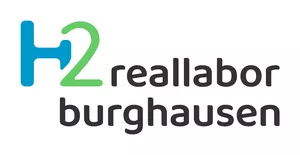- SPEEK-based temperature-resistant catalyst for etherification and esterification reactions. Applied Catalysis O: Open 190, 2024, 206951 more…
- In situ impregnated Ni/Al2O3 catalysts prepared by binder jet 3D printing using nickel nitrate-containing ink. Catalysis Communications 182, 2023, 106738 more…
- 3D printed co-precipitated Ni-Al CO2 methanation catalysts by Binder Jetting: Fabrication, characterization and test in a single pellet string reactor. Applied Catalysis A: General 643, 2022, 118760 more…
- Development of a manufacturing process for Binder Jet 3D printed porous Al2O3 supports used in heterogeneous catalysis. Additive Manufacturing 50, 2022, 102498 more…
- Morphological tuning of membrane processing by temporal proton-metal cation substitution in perfluorosulfonic acid membranes. Electrochimica Acta 362, 2020, 137182 more…
- On the deactivation of Ni-Al catalysts in CO2 methanation. Applied Catalysis A: General 570, 2019, 376-386 more…
- Sulfur poisoning of co-precipitated Ni–Al catalysts for the methanation of CO2. Journal of CO2 Utilization 32, 2019, 80-91 more…
- On the interaction of CO2 with Ni-Al catalysts. Applied Catalysis A: General 580, 2019, 71-80 more…
- Targeted Fe‐Doping of Ni−Al Catalysts via the Surface Redox Reaction Technique for Unravelling its Promoter Effect in the CO 2 Methanation Reaction. ChemCatChem, 2019 more…
- Characterization of nickel catalysts with transient methods. Applied Catalysis A: General 549, 2018, 93-101 more…
TUM School of Natural Sciences
Chair I of Technical Chemistry
Prof. Dr.-Ing. Kai-Olaf Hinrichsen
The Chair I of Technical Chemistry deals with process and reaction engineering fundamentals and the mapping and optimization of complete chemical processes. In the field of PtX, the focus is on the structural and kinetic characterization of catalysts for the hydrogenation of carbon oxides.
Research primarily revolves around hydrogenation reactions of carbon oxides, particularly CO2 methanation and methanol synthesis. Intensive basic research on structure-activity relationships and deactivation processes is conducted at the Chair.
With the aid of simulation software (computational fluid dynamics), detailed studies are also carried out on heat and mass transfer limitations of catalytic reactions in new reactor concepts.
Website: Research at TC1
Contact: Tabea Gros, Farah Mirzayeva

Technology development to improve power-to-methanol processes and Investigation of innovative reactor concepts
The Chair I of Technical Chemistry is involved in the characterization of catalysts, kinetic investigations under stationary, but above all dynamic reaction conditions, and the modelling of the kinetics of Cu/ZnO-based CO2 methanol synthesis. Computational Fluid Dynamics (CFD) is also being used to investigate other innovative reactor concepts and evaluate their potential for power-to-methanol processes.
Simulative investigation of the bio-chemical synthesis for the production of SAFs
The upscaling potential of various process routes is being investigated. The focus is on model development, process modelling and optimization for the bio-chemical synthesis to produce SAFs.
Type: Collaborative project: H2 Reallabor Burghausen – ChemDelta Bavaria
Funding: German Federal Ministry of Education and Research (BMBF)
Funding code: 03SF0705B
Runtime: 01.04.2023 - 31.03.2027
Website: H2-Reallabor - Reallabor Burghausen
Contact: Tabea Gros, Farah Mirzayeva
Further Information: TUM Kooperationsprojekt

Flexible synthesis of light to medium alcohols and hydrocarbon energy carriers
The aim is to develop a scalable reaction pathway and catalyst system for the chemical storage of H2 in CO2-based alcohols and hydrocarbons. For this purpose, kinetic models for the hydrogenation of CO2 to alcohols and lower olefins are set up at the Chair I of Technical Chemistry. These models are used in conjunction with other process simulation tools to represent the overall process. Furthermore, kinetic studies of a Cu/ZnO-based catalyst for methanol synthesis from CO2 are carried out to elucidate deactivation mechanisms.
Type: H2FLEX: Catalytic composite cascades for utilization of “green H2” for the production of carbon-containing chemical products
Funding: German Federal Ministry of Education and Research (BMBF)
Funding code: 03SF0739A+B
Runtime: 01.05.2024 - 30.04.2027
Website: H2FLEX
Contact: Tabea Gros, Farah Mirzayeva
Further Information: TUM Kooperationsprojekt